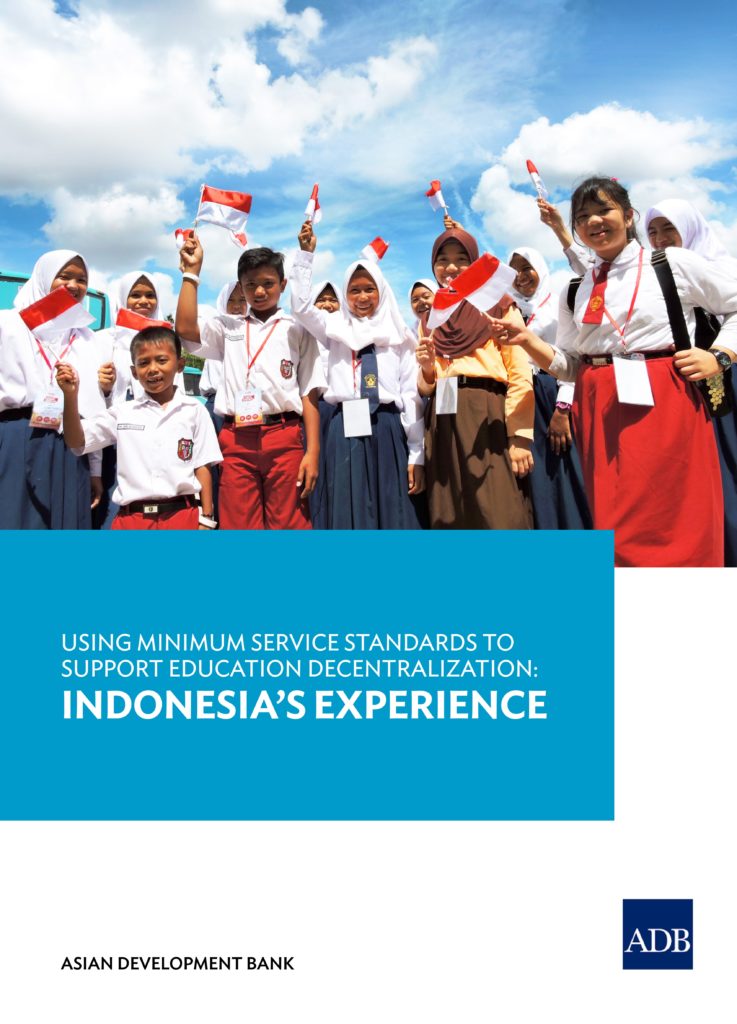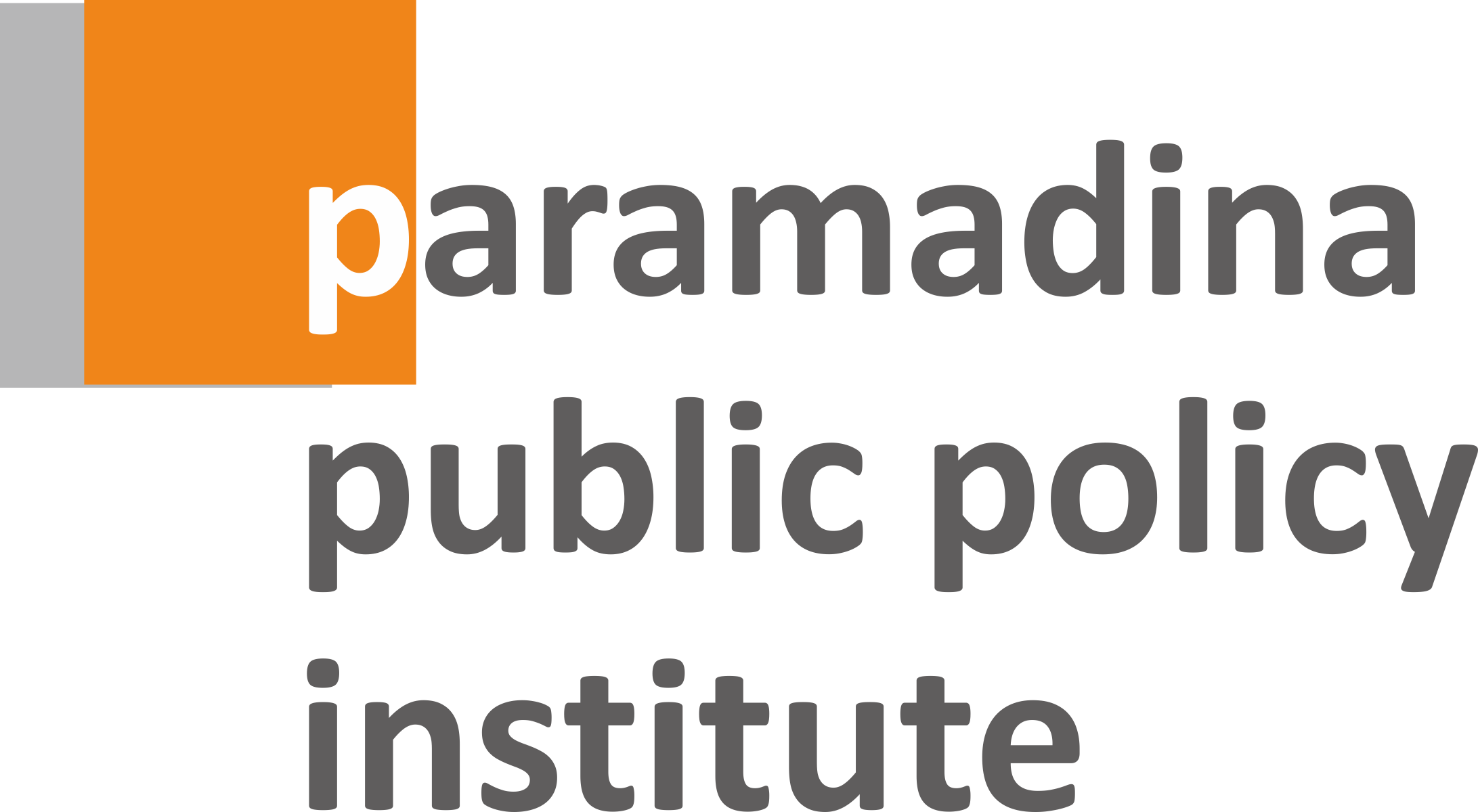
Asian Development Bank
Draft manuscript prepared by
Isabella Tirtowaluyo & Totok Amin Soefijanto
2021
Summary
Improving the quality of education requires synchronized efforts. The government needs not only clear vision and policy direction, but also solid public support and oversight, effective coordination among stakeholders during implementation, and strong support from all levels of bureaucracy throughout the entire process.
Indonesia’s experience is an important case to be observed closely. Following a political reform movement in 1999, the responsibility of managing most government affairs and public services—including education—was decentralized to local governments.
In a decentralized system, the Minimum Service Standards (MSS) policy instrument can be used to guide and monitor local governments in their delivery of public services. MSS describes the minimum quality and quantity of services a local government has to deliver in a specific sector and includes quantitative and qualitative indicators to measure achievements.
Indonesia first introduced MSS for the education sector in 2001, following the enactment of decentralization laws in 1999. The policy was updated in 2004 following the enactment of the education law and a revision of the decentralization law. In 2010, the government issued a new version of MSS for basic education, which was then revised in 2013. The latest version of the education MSS was issued as a ministry regulation in 2018.
To support the use of MSS in basic education, the Government of Indonesia implemented the Minimum Service Standards Capacity Development Program (MSS-CDP) from 2013-2017 with support from a €37.3 million (equivalent to $47.03 million at the time of approval) technical assistance grant from the Asian Development Bank (ADB) and the European Union (EU). The program targeted 110 districts, which is equivalent to around 20% of the total districts and municipalities in the country. It aimed to improve their capacity in planning, budgeting, implementing, and monitoring MSS fulfilment. Of the target, 108 districts participated in the program, and 103 districts completed it.
The MSS-CDP began by assisting the participating districts and municipalities in measuring the status quo of their MSS achievement to derive a baseline. Subsequently, the program trained over 204,000 education personnel (34.6% female)—consisting of school principals, supervisors, district officers and school committees—on how to analyze their MSS gap and prepare a roadmap to meet the standards through planning and budgeting exercises. Towards completion, the program conducted a census to measure MSS achievement in 45,000 primary and junior secondary schools in 108 districts.
Out of the 108 districts that participated in the program, 100 completed their MSS roadmaps, 66 of which have been integrated into their respective district annual work plans and district mid-term development plans. They also earmarked budgets for it in their plans for the coming 3-4 fiscal years.
The program has demonstrated impacts in strengthening local governments’ capacities to analyze their MSS gaps, map out how they would achieve the standards, and develop action plans in line with their respective fiscal capacities. The following lessons can be drawn from the program implementation:
- Building ownership and commitment among key education stakeholders, both at the central and local government levels, is critical to the successful implementation of a program;
- It is equally important to develop appropriate approaches and methods to deliver capacity building initiatives for different target groups;
- An effective socialization and public awareness campaign, including the use of various media platforms, should be designed carefully from the beginning; and
- Provision of effective guidance and technical advice from experienced field facilitators/district advisors is pivotal.
The MSS-CDP also provides a number of lessons for updating or reformulating education MSS, such as the following:
- Standards should only hold districts and schools accountable for matters over which they have control;
- Standards should clearly define outputs or targets that can be interpreted with relative ease by local governments;
- Standards should govern educational components;
- Standards provide sufficient practical guidance that can be translated into the planning-budgeting process in line with common practices;
- Standards should not be a standalone policy; and
- Standards reflect an affirmative agenda aiming foremost to help reduce regional and school-to-school disparity in education quality
DOWNLOAD full report below
